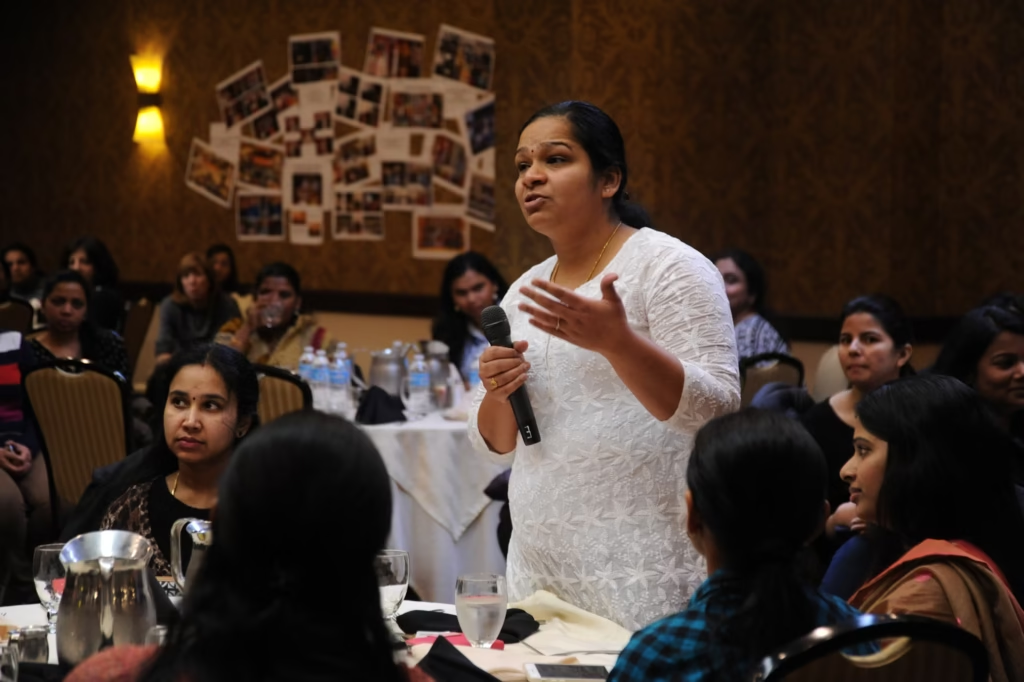You walk into a room to attend a speech session. Every raised hand has English as a second language. You will always notice that people with impeccable English speaking skills have an edge over others during examinations. Therefore, understanding privilege and its impact on cross-cultural communication has become increasingly important now. The convergence of cultural privilege, power dynamics, and geopolitical situations deliberately molds our ways of cross-cultural interactions. This blog post explores how systemic privilege and power influence cross-cultural communication and offers insights for more equitable interactions. So, let’s quickly understand the role of privilege in cross-cultural communication.
Understanding Privilege in Cross-Cultural Communication
Cross-cultural privilege is an advantage in intercultural interactions. These advantages influence communication. Knowing how privilege works in different cultures is key to creating fairer and more worthwhile conversations. There are certain kinds of privileges based on lingual, cultural, and might
Language Privilege

Language use is a form of privilege. English gives native speakers an unfair advantage in business and education. People without this privilege often have to…
- Speak in a language they understand.
- Overcome language and cultural differences.
- The discrimination of accents or dialects.
Cultural Power and Privilege
Historical power structures and inherited privilege continue to influence cross-cultural interactions:
- Colonial histories create privilege.
- The economy and relationships between countries are hyperlinked.
- Western cultural influence in the worldwide media and business world.
There are 2 types of it applicable to various professional and socio-economic scenarios. So, here they are.
Types in Cross-Cultural Settings
Institutional Privilege
Those from dominant cultures often experience privilege such as having their cultural norms considered “standard” or ‘class’ or ‘posh’, seeing their traditions widely recognized along with experiencing fewer barriers in international settings.

Socio-economic Privilege
Economic privilege notably strikes cross-cultural communication through the surge to international travel, education, technology, resources for communication, and investment in language learning.
You might underestimate the influence of privilege on your daily convos because you might not be statistically aware. In the soft power index, the USA ranks no 1 which is quite shocking. Why? Because the country has no culture of its own. But, it has a giant tech-culture and an immigration culture. Whereas, India’s ranking is quite bad because it has soft power but it lacks a cultural expression in its schools, universities and companies. It is still suffering from a British hangover despite reforms on every front. How tragic it sounds to me that Indian men wear a three-piece suit not dhoti-kurta! That’s the impact of colonization. We all know this. But to know further, scroll down.
The Impact of Privilege on Communication
These zest of privilege alter communication in 2 distinct ways:
- Voice and representation is determined by who holds the privilege of being heard, whose perspectives receive it and how stories and experiences are interpreted.
- Communication styles dictate dominant cultures’ privilege in setting communication norms, pressure on minority cultures to adapt and a total misinterpretation of differences.
You can’t remove this privilege impact in one day. But, you can definitely work on fair cultural communication. So, here are 4 tips. See.
4 Quick Tips of Working Toward Communication Equity
- Acknowledging Privilege
You have to be self-aware of your own areas of privilege. And try to decipher historical power activity. Lastly, ask yourself how it influences communication.
- Active Listening and Learning
If you really wanna work with cross cultural people, then be curious because it prompts you to ask them the right questions. And, as you know that asking questions is a wonderful way to reach out to as many people as you can.
Listen without cultural bias by being open to different ways of expressions. You have to acknowledge other people for who they are and what they stand for. First, you always have to give a leeway then you get one in return.
- Creating Inclusive Spaces

You might not believe in a concept, ‘every voice matters’ because you might not want to be a people-pleaser. But for a moment, think if you are unheard in a cowarded space, you might feel excluded or like you belong somewhere else not here. So, you have to treat others as you want to be treated by ensuring multiple voices are heard and valued when people are in your space.
Adjust yourself to different styles by sharing privilege and power. People sometimes forget to adjust themselves to adapt to different cultural communication verticals. Therefore, they cannot align and share something linguistically and articulately prevalent.
- Challenging Systemic Privilege
As it is quite important to create inclusive spaces, it is also important to question a few dominant assumptions like decision-making power is a kind of privilege of white people. Then, you cannot ask decision autonomy but what you can do is to ask for sharing those powers as allies and friends.
Because when you do so, you create opportunities for backward voices.

The above tips can help you for a short span. But, for a long period, you desperately need strategies. Because, you are not running in sprints, you are running in marathons.
3 Practical Strategies for Better Cross-Cultural Communication
- Practice cultural humility
Being humble about cultural differences is not as pricey as you think. You don’t have all the answers. So, be very open to new cultural situations. Cultural humility and cultural empathy are two peas of one pod.
- Develop cross-cultural skills
Be open to new ideas when you meet people from other cultures. Ask questions to understand them better and not to argue. Then, you start immersing yourself and you automatically develop cross-cultural competence.
- Learn from mistakes

Cultural empathy is a lifelong journey. The more you learn. So, the more you understand. It is a continuous process in which chances of trial and error are high. For instance, kissing and hugging in foreign nations is considered as a norm but several Asian nations consider it a big taboo.
By actively stirring to concoct more equitable communication spaces, we can build better understanding across cultures in a way. This requires ongoing commitment to self-reflection, learning, and adaptation of our communication practices. We should be conscious of privilege that can help to dismantle toxic hierarchies. Creating inclusive spaces for dialogue is the need of the hour.
Read more:
All about Business Skills